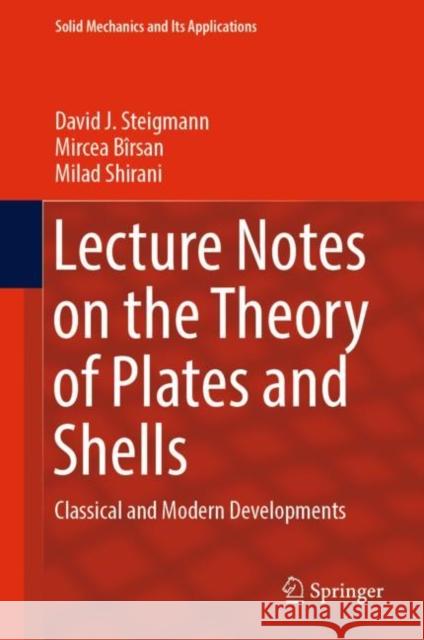Lecture Notes on the Theory of Plates and Shells: Classical and Modern Developments » książka
Lecture Notes on the Theory of Plates and Shells: Classical and Modern Developments
ISBN-13: 9783031256738 / Angielski / Twarda / 2023 / 252 str.
Lecture Notes on the Theory of Plates and Shells: Classical and Modern Developments
ISBN-13: 9783031256738 / Angielski / Twarda / 2023 / 252 str.
(netto: 423,68 VAT: 5%)
Najniższa cena z 30 dni: 424,07
ok. 16-18 dni roboczych.
Darmowa dostawa!
This book presents the theory of plates and shells on the basis of the three-dimensional parent theory. The authors explore the thinness of the structure to represent the mechanics of the actual thin three-dimensional body under consideration by a more tractable two-dimensional theory associated with an interior surface. In this way, the relatively complex three-dimensional continuum mechanics of the thin body is replaced by a far more tractable two-dimensional theory. To ensure that the resulting model is predictive, it is necessary to compensate for this ‘dimension reduction’ by assigning additional kinematical and dynamical descriptors to the surface whose deformations are modelled by the simpler two-dimensional theory. The authors avoid the various ad hoc assumptions made in the historical development of the subject, most notably the classical Kirchhoff–Love hypothesis requiring that material lines initially normal to the shell surface remain so after deformation. Instead, such conditions, when appropriate, are here derived rather than postulated.
This book presents the theory of plates and shells on the basis of the three-dimensional parent theory. The authors explore the thinness of the structure to represent the mechanics of the actual thin three-dimensional body under consideration by a more tractable two-dimensional theory associated with an interior surface. In this way, the relatively complex three-dimensional continuum mechanics of the thin body is replaced by a far more tractable two-dimensional theory. To ensure that the resulting model is predictive, it is necessary to compensate for this ‘dimension reduction’ by assigning additional kinematical and dynamical descriptors to the surface whose deformations are modelled by the simpler two-dimensional theory. The authors avoid the various ad hoc assumptions made in the historical development of the subject, most notably the classical Kirchhoff–Love hypothesis requiring that material lines initially normal to the shell surface remain so after deformation. Instead, such conditions, when appropriate, are here derived rather than postulated.











